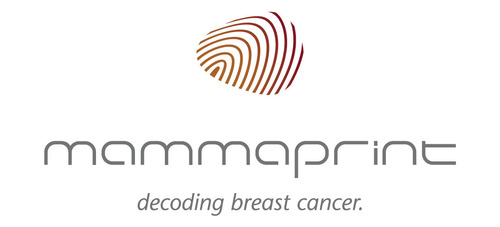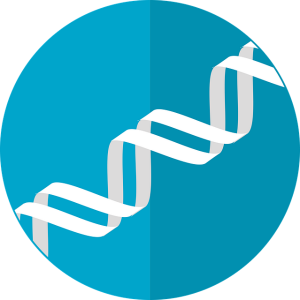Just In
- 9 hrs ago

- 9 hrs ago

- 13 hrs ago

- 14 hrs ago

Don't Miss
- Technology
 Apple Confirms Special Event for May 7: iPad Air, iPad Pro 2024 Models Expected
Apple Confirms Special Event for May 7: iPad Air, iPad Pro 2024 Models Expected - Finance
 TCS Vs Infosys Vs Wipro Shares, ADRs, Upcoming Dividends: Which Mega IT Stocks To Buy After Q4 Results?
TCS Vs Infosys Vs Wipro Shares, ADRs, Upcoming Dividends: Which Mega IT Stocks To Buy After Q4 Results? - Sports
 Who Won Yesterday's IPL Match 39? CSK vs LSG, IPL 2024 on April 23: Marcus Stoinis Fires 63-ball 124 To Quiet Chepauk
Who Won Yesterday's IPL Match 39? CSK vs LSG, IPL 2024 on April 23: Marcus Stoinis Fires 63-ball 124 To Quiet Chepauk - News
 Senator Lambie Calls For Elon Musk's Imprisonment Over Wakeley Church Stabbing Posts
Senator Lambie Calls For Elon Musk's Imprisonment Over Wakeley Church Stabbing Posts - Movies
 Mirzapur 3 OTT Release Date, Platform: When Will Mirzapur Season 3 Premiere On Amazon Prime Video?
Mirzapur 3 OTT Release Date, Platform: When Will Mirzapur Season 3 Premiere On Amazon Prime Video? - Education
 Telangana Inter Manabadi 1st and 2nd Year Results 2024 to be Declared Tomorrow
Telangana Inter Manabadi 1st and 2nd Year Results 2024 to be Declared Tomorrow - Automobiles
 Chrysler Pacifica Marks Seven Years As Most Awarded Minivan With New Campaign
Chrysler Pacifica Marks Seven Years As Most Awarded Minivan With New Campaign - Travel
Kurnool's Hidden Gems: A Guide To Exploring India's Lesser-Known Treasures
New Gene Tool That Can Identify Aggressive Breast Cancer Early
Genetic tool can accurately predict high risk, early stage breast tumors even if clinical procedures fail to classify them.
Breast cancer is the most aggressive cancer affecting women (and some men) in the world.
And till now it was believed that early detection can prevent this tumor from turning into a full-body metastasis.
But not anymore.

Researchers at the European Organization for Research and Treatment of Cancer (EORTC) in Brussels, Belgium have discovered that 1 out of every 4 breast tumors detected early will still turn into aggressive cancer, unless they are treated with adjunct chemotherapy.
The team, headed by Dr. Konstantinos Tryfonidis, used the RNA based tool MammaPrintTM, developed by the Netherlands Cancer Institute, to test the hypothesis that most of the women diagnosed with breast cancer do not need adjuvant therapy, while some that escape high risk diagnosis, usually do need the adjunct.
A hypothesis which was the reason why the study was also nicknamed MINDACT (Microassay in Node Negative Disease may Avoid Chemotherapy).

Astonishing Findings that Have Turned Current Protocols Obsolete
During the course of the study, the researched assessed 6,693 women with early stage breast cancer (with or without lymph node involvement), and found that 24% were diagnosed low risk after clinical assessment even though the 70-gene signature test forecasted that they were high risk.
This group was then randomly divided into two parts, where one group was stated to receive chemotherapy as an adjunct to conventional breast cancer treatment, and the other was not.
Sure enough, after following up with both groups of patients over a period of 5 years, the researchers found that the group that was given the adjunct therapy had very few cases of metastases and relapses, and had a higher rate of overall cancer survival.
An observation that contradicts the traditional assumption that early stage tumors are not serious and do not need adjunct therapy.
In fact, the team also found that 40% of the patients who were classified as high risk by current clinical protocols actually were graded low risk by MammaPrintTM and did not need toxic chemotherapy, which often puts patients under a lot of financial burden.

Why is This Important?
The public awareness of breast cancer today is far more than what it used to be decades ago.
No wonder the number of cases detected in stage 1 are far more now than ever before.
Nevertheless, it is estimated that around 30% women who are diagnosed early with breast cancer still develop metastasis and die within 5 years, even though only 15 - 20% of early cancers are considered low risk.
What is the reason behind that abysmally large number?
It is because of two reasons: Lack of technological advances, and the medical perception that early stage tumors are not matters of serious concern.
Both of which are being challenged by this new research.
What Do You Think?
Does the use of genomic tests to successfully predict the outcome of a tumor, even small ones, sound promising to you?
Or do you feel it is too early to set our hopes up high?
We would love to hear from you in the comments' section below.
And if you enjoyed reading this, please hit the heart button at the bottom of the page and share this article with the women in your life.
Source: Molecular Oncology
Vaping vs Smoking: The Hidden Dangers of E-Cigarettes
-
 healthWhat Is The Right Age To Get Breast Cancer Screening?
healthWhat Is The Right Age To Get Breast Cancer Screening? -
 healthBreast Cancer Awareness Month: How To Avoid Breast Cancer Triggers In Your Daily Life?
healthBreast Cancer Awareness Month: How To Avoid Breast Cancer Triggers In Your Daily Life? -
 healthIs Ignoring This Morning Habit Increasing Your Risk Of Breast Cancer?
healthIs Ignoring This Morning Habit Increasing Your Risk Of Breast Cancer? -
 healthBreast Cancer Awareness Month 2023: These 3 Daily Habits Can Increase Breast Cancer Risk
healthBreast Cancer Awareness Month 2023: These 3 Daily Habits Can Increase Breast Cancer Risk -
 wellnessBreast Cancer Awareness Month: 10 Best Cancer-Fighting Foods That Are Easily Available And Pocket-Friendly
wellnessBreast Cancer Awareness Month: 10 Best Cancer-Fighting Foods That Are Easily Available And Pocket-Friendly -
 pregnancy parentingBreast Cancer Awareness Month 2023: Can Children Get Breast Cancer? What Are The Warning Signs?
pregnancy parentingBreast Cancer Awareness Month 2023: Can Children Get Breast Cancer? What Are The Warning Signs? -
 healthBreast Cancer Awareness Month 2023: These 3 Foods May Increase Breast Cancer Risk
healthBreast Cancer Awareness Month 2023: These 3 Foods May Increase Breast Cancer Risk -
 pregnancy parentingShattering Myths: Breastfeeding Success After Surviving Breast Cancer
pregnancy parentingShattering Myths: Breastfeeding Success After Surviving Breast Cancer -
 health10 Types Of People At Risk Of Breast Cancer: Are You One Of Them?
health10 Types Of People At Risk Of Breast Cancer: Are You One Of Them? -
 healthTake Control of Your Breast Health: Early Detection and Prevention Tips To Defeat Cancer
healthTake Control of Your Breast Health: Early Detection and Prevention Tips To Defeat Cancer -
 healthMyths vs Facts: Can Men Get Breast Cancer?
healthMyths vs Facts: Can Men Get Breast Cancer? -
 healthAt What Time Does Cancer Spread In Your Body? Do Cancers Spread Differently?
healthAt What Time Does Cancer Spread In Your Body? Do Cancers Spread Differently?


 Click it and Unblock the Notifications
Click it and Unblock the Notifications



